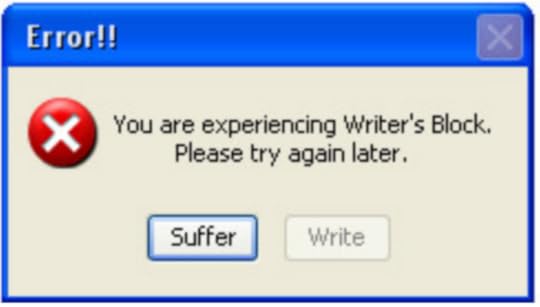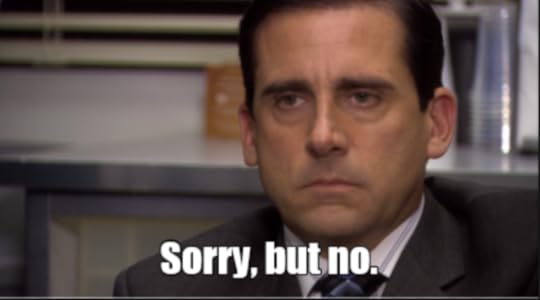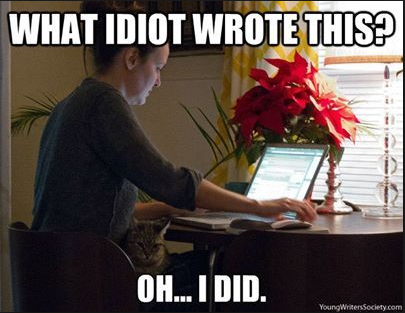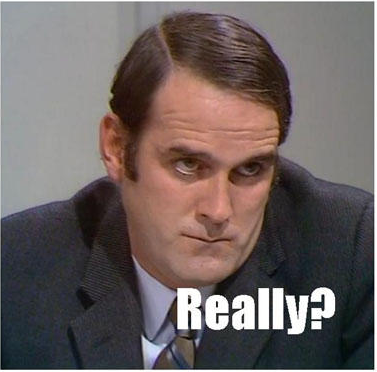Do Some People Lack the Talent to be a Successful Author?

Talent is so utterly subjective. How can we know if we actually have it? Recently, I was chatting with my cousin who’s an incredible artist.
She mentioned how, no matter how many compliments or how many sales, she can’t help but feel like an imposter.
I, of course, responded that authors suffer the same malaise. Imposter syndrome is alive and well, and it doesn’t matter how many books we write, the titles we earn or how many books we sell. For a lot of us? We still can’t help but feel like a fraud.
That we don’t actually have any talent. Oh, and that any moment someone might find out we’ve fooled the world and have no talent at all.
All of this posits the eternal question…
Are there just some people who simply lack the talent to be a successful author?

Good question. Especially in the age of digital publishing, when a million plus books and climbing are published every year. Readers are drowning in the slush pile, which is a fairly clear sign of a SEVERE lack of self-awareness. Too many writers are publishing too soon, before the work is ready for market.
And, since this problem doesn’t look as if it will sort itself out any time soon, how do we handle this in the interim? When do we know we’re ready, especially if we don’t publish traditionally?
That’s a big question, so I’m going to tackle this from another, simpler, angle.
My POV?
One huge problem is that far too many people believe that a ‘clever’ idea and command of the English language is all that is required to become a novelist. Yet, that is not the case.
Drowning in BAD Books

Plenty of readers have challenged me to write a post that might serve as some kind of a litmus test for talent, but in truth? Such a list is beyond the scope of my abilities. Why?
Because I don’t know if such a checklist exists.
Sales certainly are no indicator of talent. There are plenty of brilliant books that don’t sell or sell poorly. Then, there are other works that sell a gazillion copies and show us clearly how taste has at least fifty shades.
Some emerging writers possess all the technical skills, yet their writing is uninspired. Their stories are devoid of that certain je ne sais quoi required to elevate the writing above the mundane and tedious.
They write ‘stories’ are flat and functional, much like a DMV building. Sure, the story has the right metaphorical walls and fire escapes.
It could pass inspection, but it isn’t a place anyone would want to get lost in and never leave.
Other writers are completely lacking in the technical skills, yet even with their wobbly first tries, one can see a spark of genius there.
Does Talent Matter?

Stephen King talks about talent in Danse Macabre (and other places as well) and I really love his view on it. He says:
Talent is cheaper than table salt. What separates the talented individual from the successful one is a lot of hard work. ~Stephen King
I firmly believe that and we will get to that in a moment.
Yet, even though King is no huge fan of ‘talent’ he does admit talent is necessary. Even if it isn’t quite the panacea people might imagine.
King equates talent to a vein of gold in a mine. One has to do the hard work of digging for the ore, refining, etc. (the nasty work most people don’t want to do).
He says if you spend an hour and a half a day writing for ten years, at the end of ten years, you’ll be a pretty good writer. Just as if you spent an hour and a half a day digging, mining, and refining ore, you’d eventually have decent stockpile of gold.
Yet, spend ten years refining common earth? At the end of ten years all you’d have is common earth.
Sad to say, but…
Common Earth Writers Exist

In my experience, there is no simple way to spot a common earth writer. Most emerging writers who seem to completely lack talent actually lack something else.
Humility.
Remember at the beginning of this post, I mentioned that too many people believe this job is easy and that, in my estimation, this is the crux of the problem.
In the pre-digital paradigm, not everyone could be published.
This meant that aspiring writers who failed to do the hard stuff—read prolifically, study, practice, take classes, go to conferences, get professional editing help when needed, etc.—languished in the slush pile.
If they didn’t?
One of Two Things Happened

Either the aspiring writer finally gave up after enough rejections OR he/she was forced to take a hard and critical look at the work and improve. Write more stories, and better stories.
Creative crucibles were personal and private affairs.
The reason it used to be a really big deal to call oneself a ‘published author’ was it was a title granted only to those who’d successfully endured the gauntlet. The title was the crown of olive leaves denoting the victor.
A lowly writer had solved the labyrinth and emerged as the highly esteemed…author.
These days no such crown exists.

We authors have been demoted to comparing rankings (which can be juked) and royalty checks (which is just tacky). There are very few ways to measure ‘success’ and know honestly if we are ‘good writers.’
Which can be demoralizing in itself.
In the pre-digital paradigm, simply being published was a HUGE accomplishment. Even mere mortals had a reverent awe for published writers. Being published represented a threshold few were ever able to cross.
Even if an author only sold a handful of books, they were still a success.
Now that ‘success’ has been democratized? I’m not even sure the best writing is what makes the most money. In fact, I’m certain of it.
Pride Before the Fall

I don’t edit as much as I used to. But still, I receive writing samples so bad I wonder if the writer has ever even read a book.
It isn’t fiction, it’s self-indulgent navel-gazing.
The characters sound like little kids playing pretend. Instead of a story, there is ‘scene’ after ‘scene’ of talking, eating, shopping, dressing, drinking, or other characters talking about something or someone else.
Usually that ‘something else’ would make an interesting novel. But no, we’re forced to endure the retelling of this intriguing development second-hand through ‘characters’ flatter than copy paper.
#FlyOnWallofNothingHappening
There’s no understanding of POV (point of view), pacing, structure or even the essentials of good dialogue or basic punctuation.
Too often, the pages I receive aren’t even a novel. They’re tropes mixed with cliches slathered in purple prose.
Which, to be crystal clear…IS FINE. Give yourself permission to be NEW. We all begin somewhere and that’s why people like me exist. We love teaching new writers how to mature and become skilled authors.
And Yet…

I can almost always tell the writers who won’t make it, and oddly it has really nothing to do with the writing.
Often I get a really nasty e-mail in reply that all their friends loved it. Oh, and their writing group thought it was the best thing since kitten calendars. I’ve had people pay to take my classes, only to argue with me the entire time.
Then go blog about what an idiot I am.
It Really Isn’t All About Talent
Yet? Some of the absolute worst writing I have ever encountered was not the end. Their creators went on to be successful. Some made damn fine authors. Why? Because they were teachable.
When I shredded their pages to the point one couldn’t even see the original text, they cried, then got over it and took my offer of help.
They were willing to spend hours on the phone with me showing them how to kill all their little darlings. These authors dove into craft books I recommended, took the classes I offered, did the exercises I assigned.
Since they took their art seriously, they slaved and wrote and rewrote and then? Voila!
Sure, they sucked. Because they were NEW. But one day? They no longer sucked because they were no longer NEW.
I had a winner of my first 20 pages back when I first ran the contest in 2011. Oh my GOD it was bad. But I offered help as I generally do.
We spent hours on the phone and Kathy was struggling. She continued reading my blogs. She took my Hooked class, and I slayed her pages again.
And again.
Yes, y’all guessed it…again.
A Remarkable Thing About Talent

She signed up for my Hooked class back in 2017. I didn’t see her name and just read pages and they were….brilliant. I didn’t want to stop. It was a TRULY excellent submission.
Then I saw the name and almost cried I was so proud. She went on to be a multi-published author who’s doing better with every book.
Another emerging writer paid me for a full edit. The writing and story were superb until the midpoint. Then, it completely fell apart into disaster. I explained in detail how it went wrong and why and what needed fixing and offered suggestions how to make the story work.
Instead of insisting I was a moron with no taste? He listened and got to work. When he sent his repaired manuscript back to me, I immediately forwarded his final to a literary agent friend of mine.
Two days after sending in his manuscript I got a breathless e-mail from the agent that she was simply stunned by his talent. He got a contract and I received GF brownies as a ‘thank you.’
Was it Talent? Really?

Every time I have run into what might be written off as a ‘common earth’ writer, I’ve seen a person who refused to grow. They brought pages every week for critique and despite help and suggestions?
Never changed.
They refused to read books on craft because they didn’t want their writing to be ‘formulaic.’ They didn’t read fiction in or even out of their genre because ‘NYC only published crap.’
And on and on and on. They just kept recycling the same dreadful writing and once self-publishing made it possible to skip gatekeepers?
These same writers greedily snatched up the title of ‘published author’ but then griped that their crappy book wasn’t selling. And the reason it wasn’t selling? Because they ‘didn’t have the mega marketing budget of a NY published book.’
In their minds, all that was lacking was the right marketing plan, ad campaign or newsletter list. I STILL hear this complaint.
Nope, it’s the book. Not the marketing.
Back to the Mines

When it comes to varying levels of talent (or lack thereof) I think we need to return to the mines. Some mines are easy. Gold dust and small nuggets all scattered about.
Very little effort required to get at the good stuff.
We all want this kind of mine and yet it, too is imperfect. This ‘gold’ also requires refining. Also, gold scattered on the ground is no clear indication of the size of the overall vein.
Maybe this writer has ONE good book in her.
There are those of us who dig through layer after layer with only a dream. Some vague indicators of gold. If we just keep pressing, we will find it. It is there, just an SOB to reach.
Then there are those who go digging for gold and find something else entirely. They strike oil, massive veins of salt, or a giant artesian spring.
Still valuable, just not in the way planned. Some writers begin writing fiction and find they are far better bloggers or they excel at non-fiction. Some discover they are crazy good editors (more skilled at the refining process).
And lastly, there is common earth which I believe exists. These folks are almost ‘tone deaf’ when it comes to storytelling. No matter how teachable, how many classes, the writing will just never be there.
This is the person who can never quite deliver a punchline. This type of writer exists for sure, but may not be as common as we imagine.
In the End

I have no litmus test for talent, but I have a pretty good indicator for skill (and, perhaps, ‘success’). A skilled writer can hook hard, hook early and engage an audience to the degree that there is no logical place for a bookmark.
Is it possible to do this every time? No. We can’t write a book everyone will love, BUT we can write a book a lot of people love.
Beyond this….
Can we remain teachable? Are we striving to grow, to get better, to actively seek tough critics to make us grow?
Do we have rhino-skin? Can we take constructive criticism?
Are we sticking with this long enough to grow that talent? Could we possibly read more craft books or take some more classes to develop our skills further? I have a WHOLE LIST of classes below that are all affordable and you get to enjoy them from home.
Even though I’ve been working as a professional writer for almost twenty years…I STILL TAKE CLASSES. I read every craft book I can get my hands on, and I read two books a week (a fiction and a non-fiction usually).
Can we be brave enough to ask the hard questions and ready to endure the answers? Are we making the most of the editors we hire? Or are we defending and arguing? How often are we writing?
Yes take classes and read but we also need practice. Are you getting enough?
Are we humble?
To me? THAT is what separates the amateur hack from the pro, NOT necessarily skill level.
I LOVE HEARING FROM YOU!
Do you think some people lack the talent to write? That no matter how much training they are utterly tone deaf to story? Or do you believe (like I do) that it’s more often a case of rushing, of not enduring the process to go from NEW to SKILLED?
Maybe there is something in between? I love hearing your thoughts.
And to prove it and show my love, for the month of OCTOBER, everyone who leaves a comment I will put your name in a hat. If you comment and link back to my blog on your blog, you get your name in the hat twice. What do you win? The unvarnished truth from yours truly.
I will pick a winner once a month and it will be a critique of the first 20 pages of your novel, or your query letter, or your synopsis (5 pages or less).
In the meantime, treat yourself to a class! You get a FREE recording with purchase. Let us help you refine that gold! You don’t have to do this ALONE! Oh and people who take my classes get extra goodies 



